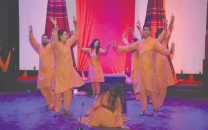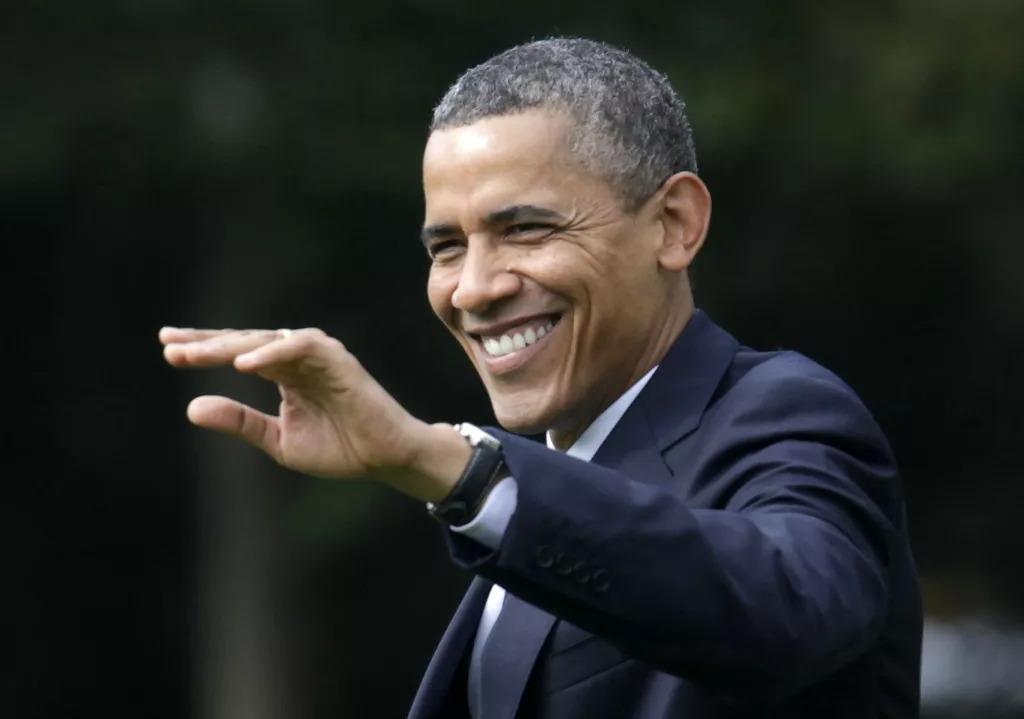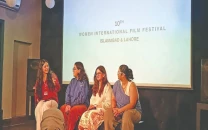Folk puppet festival refreshes Lahore
The festival will feature daily performances from 9am to 9 pm.

This is the 8th Folk Puppet Festival, which for the first time has been elevated to an international level due to the increased participation of artists from other countries. The festival continues till March 27. It is significant as foreign artists are performing in Lahore after a long break.
Watching the puppeteers perform together delighted audiences at the festival. “Pakistani and Norwegian puppeteers’ way of working is the same, only the themes are different. Pakistani puppeteers are mostly folk artists while in Norway the tradition of puppetry doesn’t go back to more than 50 years”. Jack Markussen, a norwegian puppeteer told The Express Tribune. Markussen, managing director of an independent theater company ‘Dukkenikkerne’ in Norway, said his performance was named Fly Habeebi. “Habeebi is an Arabic word which means friend. The performance is about the palace of a Sultan where I serve as a tea boy. There are eight characters in this 30-minute performance,” Markussen said. “In Norway puppetry is currently being done for puppetry’s sake. No social issues are dealt with in puppetry and the performances are based on different stories mainly meant for kids.”
Rohana Deva, a noted puppeteer from Sri Lanka, said that folk puppetry in Sri Lanka was based on the stories about Buddha. “We use string puppets. The performances base on dance sequences and have traditional as well as contemporary songs. We celebrate Visakh festival every year in May, in which puppeteers from different parts of the country come and perform,” he said. “There are different types of characters in our puppetry. Traditional puppeteers base their performances on folk stories while some modern puppeteers are now speaking about social issues through their performances,” he added.
Wijesiri Ganwary, a folk puppeteer from Sri Lanka is the youngest son of prominent puppeteer late G Jemis and grandson of the master puppeteer Guru Ganwari Podisirina. “Gamini puppeteers possess a mobile puppetry stage with all accessories. They can setup their stage anywhere and perform,” he said.
There are 11 parties of local folk puppeteers performing at the festival from Bahawalpur, Multan, Lodhra, Khaniwal and Dunya Pur. Muhammad Bashir, a senior folk puppeteer, said, “One party has two members: one male and the other female. The male members operate puppets while the female sings and plays the dholki,” he said.
“We use wooden puppets that are made of mango trees. Our stories are traditional stories of Emperor Akbar. Patay Khan, Beebral Wazir, Nukhlo Shehar Da Nawab, Beeka Nehar Da Raja, Amar Singh Rathore, Jodh Pur Ka Raja are some of our famous folk puppetry tales that we perform,” said Bashir Dhamali, a puppeteer from Multan.
“The RPTW continues to strive against all odds, keeping its social responsibility in mind with a mission to promote cultural activities in Pakistan. There is no corporate patronage left for such events however we hope that in the coming years, the festival will truly become an international showcase of traditional forms of puppet theatre from around the world,” RPTW Creative Director Faizan Peerzada maintains.
Published in The Express Tribune, March 22nd, 2011.



















COMMENTS
Comments are moderated and generally will be posted if they are on-topic and not abusive.
For more information, please see our Comments FAQ